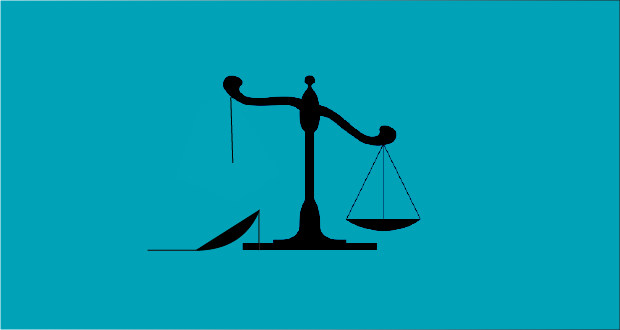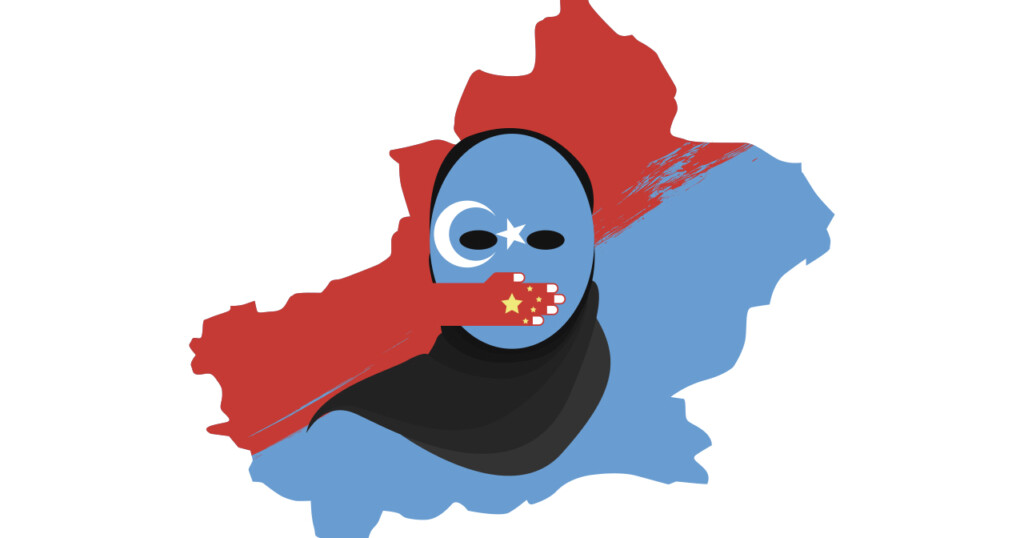1. Come to terms with the idea of suffering
Suffering is a fact of life. For Muslims there is a particular way of dealing with the existence of suffering. Suffering is decreed by Allah, and it exists from His natural order. It is not possible to find any moment in history where there is no suffering, no pain.
There are two common extremes we need to avoid:
A. Despair – When we hear about all these injustices—the physical and mental abuse against our brothers and sisters—it is no doubt distressing. However, this sympathy for them should never become despair. As Muslims we are taught that despair is not something that is productive or beneficial.
B. Apathy – Do not forget your obligations. We cannot be on the opposite end of the spectrum either and completely ignore injustices. Often people create a rationale or logic that these things are going on in far-away lands and we should completely ignore them. Perhaps they don’t want their days spoiled by morbid thoughts or they place a clear separation in matters of justice and that as “British Muslims” we should only focus on “British issues.” Others may be afraid due to the monopoly of power that is possessed by ‘Great Powers’ like China and by association have both justified and rational fears.
Between these two there is a clear need for balance. We can take lessons from the life our beloved Prophet Muhammad ﷺ who never despaired regardless of the many trials and afflictions he faced. Throughout history we can see that all the best leaders are not people of despair and are quite the contrary, people of optimism and hope.
Encompassing this all, we need to recognise that Allah ﷻ is the only entity that is supremely in control of everything. There is nobody else that has the power and ability to truly control anything. As Muslim we are taught to say – لا حول ولا قوة إلا بالله – “there is no strength, ability or power except with Allah”. The understanding of this is that we do possess power but in a limited and restricted sense and even this we have been given by Allah (so in fact the power is really His). As for Allah ﷻ, His power is unlimited and unrestricted; if Allah wishes to change something He merely utters a word composed of two letters: kun (‘be’) and that which He desires comes into being. In the Qur’an, Allah ﷻ says ‘kun fa yakūn’ – ‘be and it is’.
2. Recognise this world is limited
As Muslims there is a huge need to recognise that this world is not the end. Whatever happens in this world (dunyā) is temporary. As mortal humans, with a limited lifespan in this world, it is often quite hard to conceive of and understand just how short the life of this world is in comparison to the hereafter (ākhirah). One way that our beloved Messenger of Allah ﷺ explained this to the Companions (Ṣahābah) was through the analogy of an ocean. He said that the life of this world is like a drop of water that remains on your finger when you dip it into the ocean, and the water that remains is the life of the hereafter.
There is a story narrated by our beloved Rasūl ﷺ, who tells of a man who had lived a life of luxury and comfort amongst the people of this world and then he will placed for an instant into the fire on the Day of Resurrection. Following this he will be removed from the Fire and asked, “Did you find and enjoy any comforts or blessings (in your worldly life)?”, to which he will reply, “By Allah, no, my Lord.” Similarly, a person who had led the most materially “miserable” life in this world will be placed for an instant amongst the inhabitants of Paradise and then he will be asked, “O son of Adam, did you face any hardship (in your worldly life)?” He will reply, “By, Allah, no my Lord, never did I face any hardship or experience any distress.”
Everything that we face has a meaning, every difficulty, every trial, every affliction. This does not necessarily mean that it will go away in this life, but it will for sure be repaid and rewarded by Allah ﷻ.
3. Know your limitations
Be realistic in your attitude – when we create targets and aims, we should be careful in not thinking of things beyond our capacity. When we do so, it is then when the devil (shayṭān) comes and starts whispering; whispering thoughts of negativity and pessimism.
Very few of the Prophets, those that the Muslims regard as the greatest of all humanity, experienced any sort of earthly power or glory. On the most part, they were ignored or rejected by the powerful their societies – but they still were, in our scale, victorious and successful.
4. Memorise and take lessons from this hadith of the Prophet Muhammad ﷺ
Abū Saʿīd al-Khuḍrī narrated that he heard the Messenger of Allahﷺ say, “Whosoever of you sees an evil, let him change it with his hand; and if he is not able to do so, then [let him change it] with his tongue; and if he is not able to do so, then with his heart – and that is the weakest of faith.
- There is a moral obligation to act against injustices that you are aware of.
- Always take action that is within your power and not beyond. The hadith talks about the ability to effect change; if you are not able to do so then you move on to the next best response. Stephen Covey in his book, ‘The 7 habits of Highly Effective People’ illustrates two concepts: that of the ‘circle of influence’ and the ‘circle of concern’.

Take action within your circle of influence – focus on there and you will be able to do something productive. Whilst at the same time make sure to be concerned beyond that. From the hadith, we are told that the minimum reaction is for us to be concerned within our heart—which would cause us to remain informed of and make du’ā concerning an evil which we cannot otherwise change.
- To bring change – you need power. What is power? In simple terms it is having the capability to do something. Consider the Covey model: whilst you have and are working within your circle of concern, you need to work to widen your circle of influence be that through growing and increasing your knowledge, your networks, building alliances, and so on. Doing so will allow you to effect more change.
- Do what is right even if there is no tangible effect – whilst the hadith is about changing an evil, which we would all like to see, the emphasis is on the personal obligation on the Muslim to do his or her best.
There is story that is related to us in the Qur’an of the Aṣḥāb al-Sabt – the people of the Sabbath. This group of people were commanded by Allah ﷻ to not go fishing on a certain day. They all abided by the divine rule except for a certain group who tried to circumvent it and find loopholes within the rules. The remaining people were of two groups.
The first group who said to the rule breakers, “Why are you breaking the law?” and a second group who rebuked the first group and said, “Why are you telling that group to change their ways?”
The Qur’an narrates them as saying “Why do you advise or warn a people whom Allah is about to destroy or punish?” What is the point in doing that? Why are you telling them?
The first group replied with two points that can be found within the Qur’an in Sūrah al-Aʿrāf
قَالُوا مَعْذِرَةً إِلَىٰ رَبِّكُمْ وَلَعَلَّهُمْ يَتَّقُونَ
We want to make sure that on the day of judgement we have an excuse in front of Allah. That we did the right thing. We had the ability and we told them. Whether they respond or not – that is not within our control. As well as this:
وَلَعَلَّهُمْ يَتَّقُونَ
Maybe because we asked them, they will fear their Lord and they will change their ways. This is the attitude that we must adopt when we’re responding to injustices. We do what is right even if we don’t see its tangible effects. Perhaps it is something that will reap its fruits in future generations – Allah knows best. Take the example of planting a tree – what are the tangible effects? It is very likely that you may die before it grows large. However, regardless of whether you see the results of your actions, you still need to carry out those actions.
5. Build a community
Find points of mutual co-operation with others and build. This is the way that you can build power and influence.
6. Integrity is integral
Always uphold your identity and principles. How can we help the Uyghurs who are predominantly being targeted due to being Muslim, without ourselves acting within the framework of Islam and not actively seeking to learn or understand Islam? Remember to do good but also be aware that other people may want to use the situation to achieve their own goals and needs; in essence using the cause as a pawn. Always make sure that the voice of those being oppressed is being amplified and they are front, right and centre. The story is about them – not you.
7. Solidarity at the minimum
If you cannot do anything else at least be with them, next to them, showing your support. If you ask survivors of some of the worst atrocities how they found strength, they will tell you that they at least knew that other people were with them.
8. Bear witness to the truth
Be truthful, speak the truth. Whether that results in any change or not do not worry. Do not think “What is the point of speaking about negativity and bad news?!” Making inkār (condemnation) of a munkar is in and of itself an act of worship, and sometimes we have to get out of our comfort zones in order to speak out even if it brings us moral anxiety or temporary sadness. It is of course counterproductive to focus on that and ignore everything else that we can practically do, but it is just as counterproductive to ignore this act as well.
9. Be courageous
The last chapter of a highly recommended book, Timothy Snyder’s ’On Tyranny: 20 lessons from the 20th century’is simply titled: ‘Be as courageous as you can’. So be that. Be willing to be different, go against the status quo, do the right thing – even if it is at a personal cost. He says within the chapter that “If none of us is prepared to die for freedom, then all of us will die under tyranny.” If no-one is prepared to come forward, everyone is affected. All of us are going to suffer.











